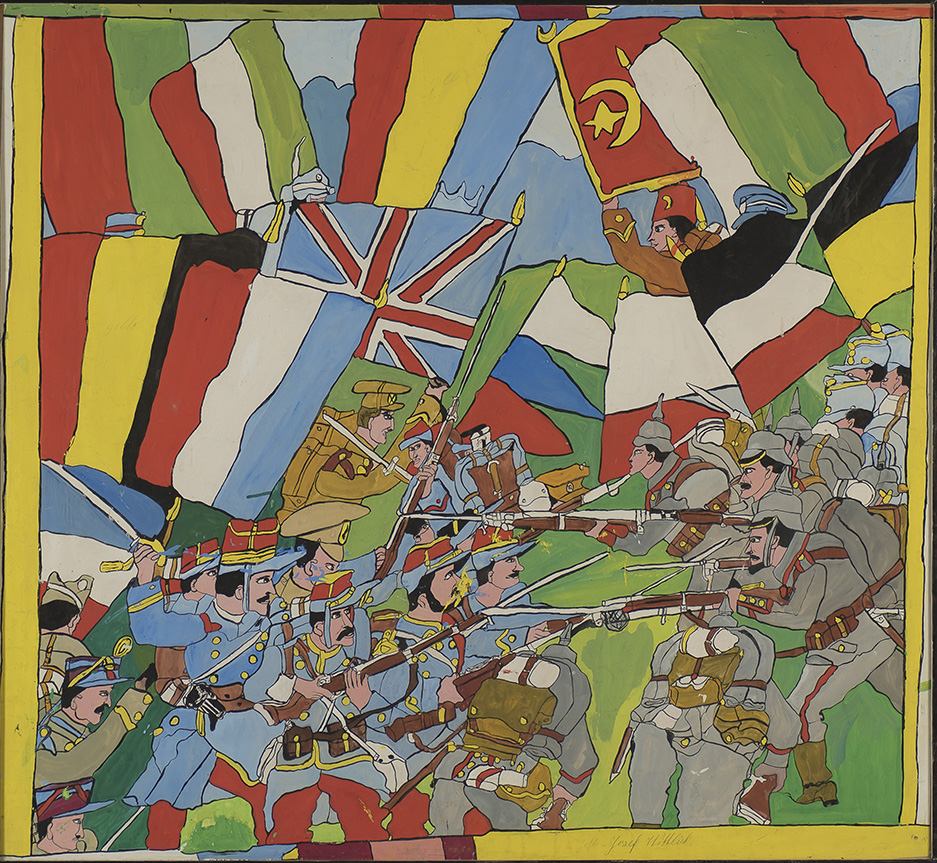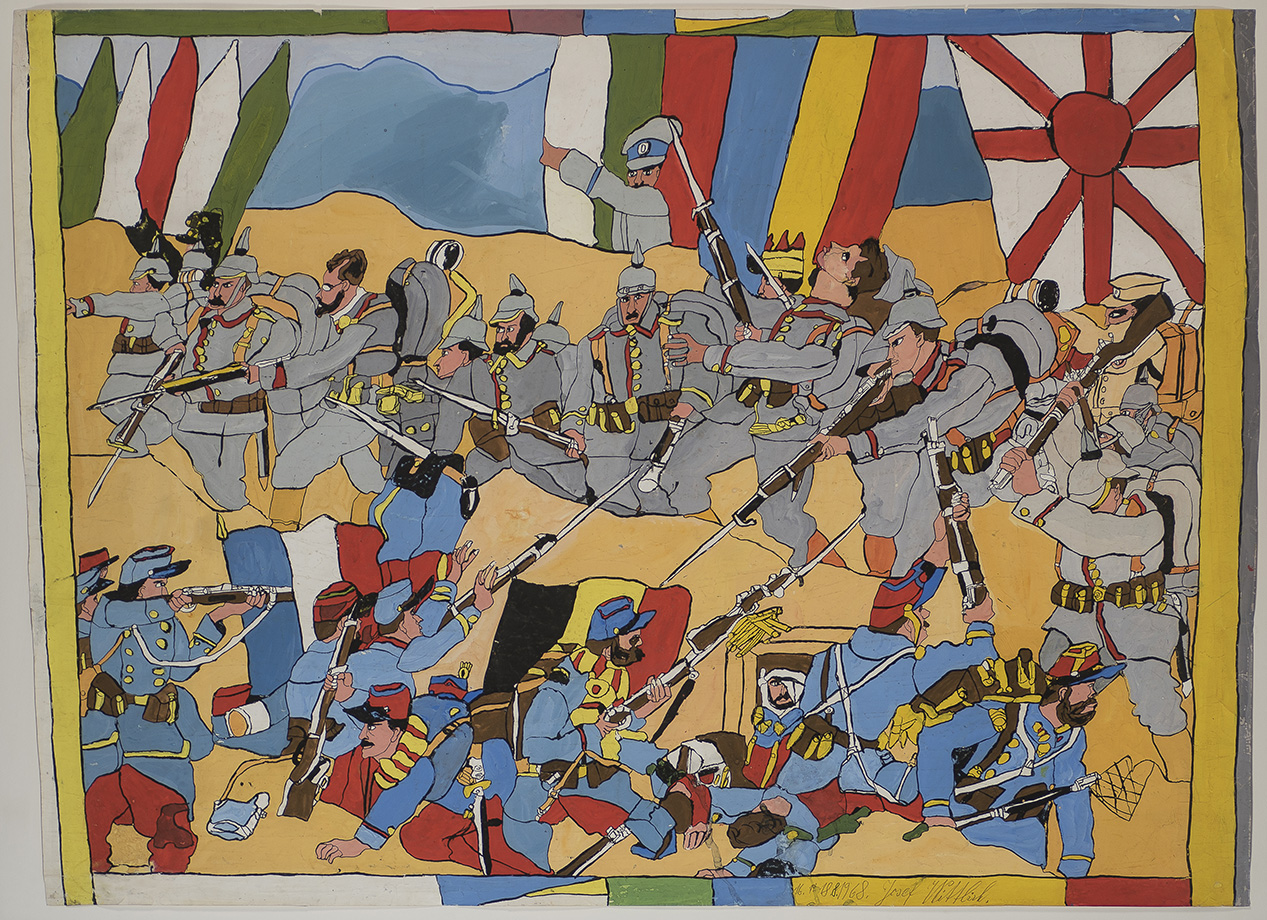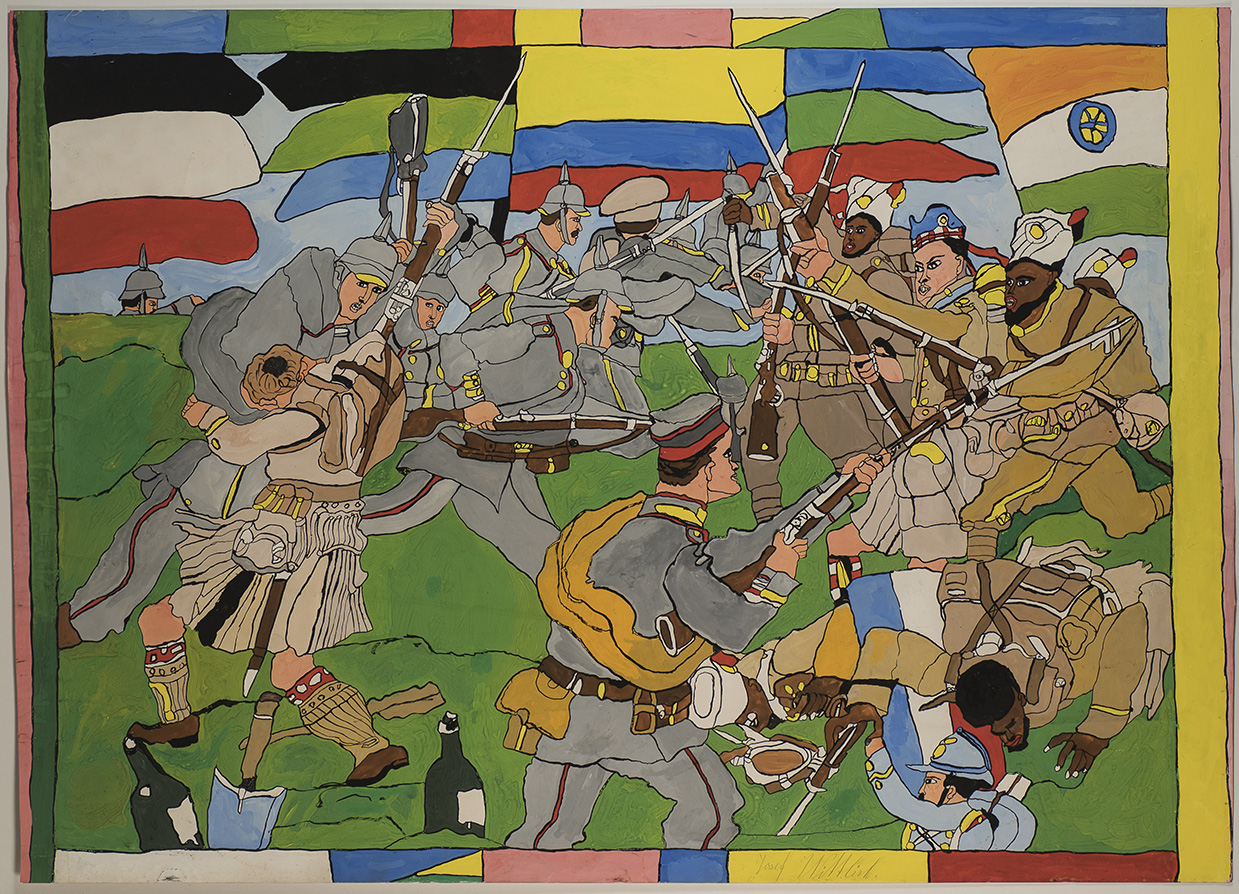Wittlich, Josef
Germany, 1903 - 1982
Josef Wittlich was born in Gladbach to a family of poor means. His mother passed away when he was four years old. Since her disappearance, the child was abandoned to his authoritarian and violent father. He learned to draw in response to domestic aggression. He left home to work in agriculture and during the World War II got involuntarily recruited into the Todt Organisation. He was injured and captured by the Soviet Army. After returning to Germany, he found a position in a ceramics factory. It was at that time that Wittlich restarted painting assiduously. In 1967, the German painter Fred Stelzig discovered his works by accident. Stelzig sought to meet Josef Wittlich and started collecting his works. For Wittlich the importance of painting lied in the process itself. The moment a work was over, he would cease to be interested by it and discard or give away the final piece. He preferred to gift his works over selling them and was greatly deceived when his presents were refused. Through the help of Fred Stelzig, he received relative success and recognition and retired in 1968. An important exhibition at Kunsthalle of Darmstadt was organized in the spring 1982, the year the artist passed away from a heart attack. His art consists of extremely flattened, posterized subjects. Wittlich picked his topics from reproductions of famous battle paintings, postcards and popular culture images. He then proceeded with fracturing the space and simplifying the colors. His obsession with flags was always manifest in his work.



